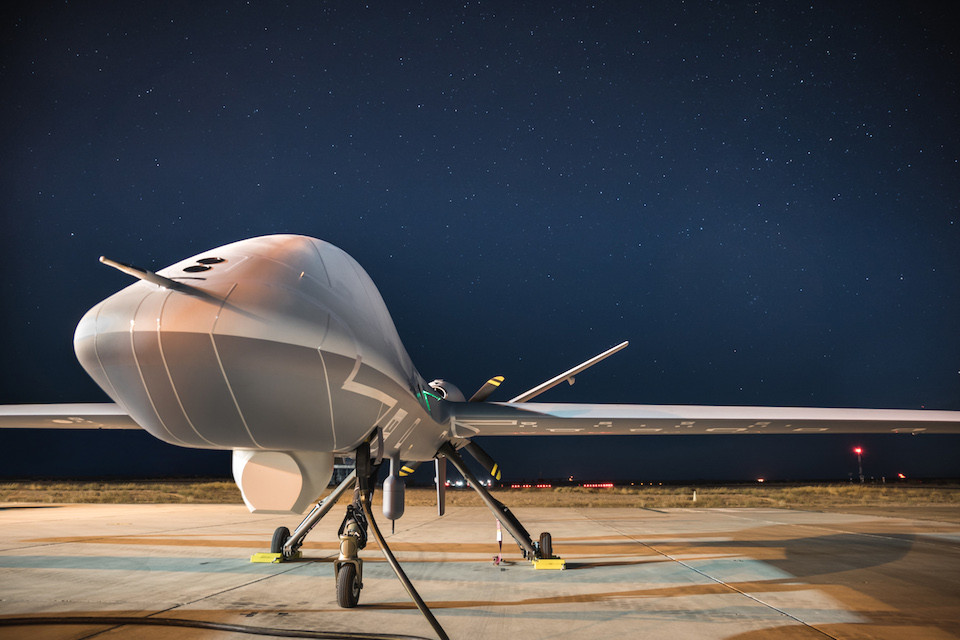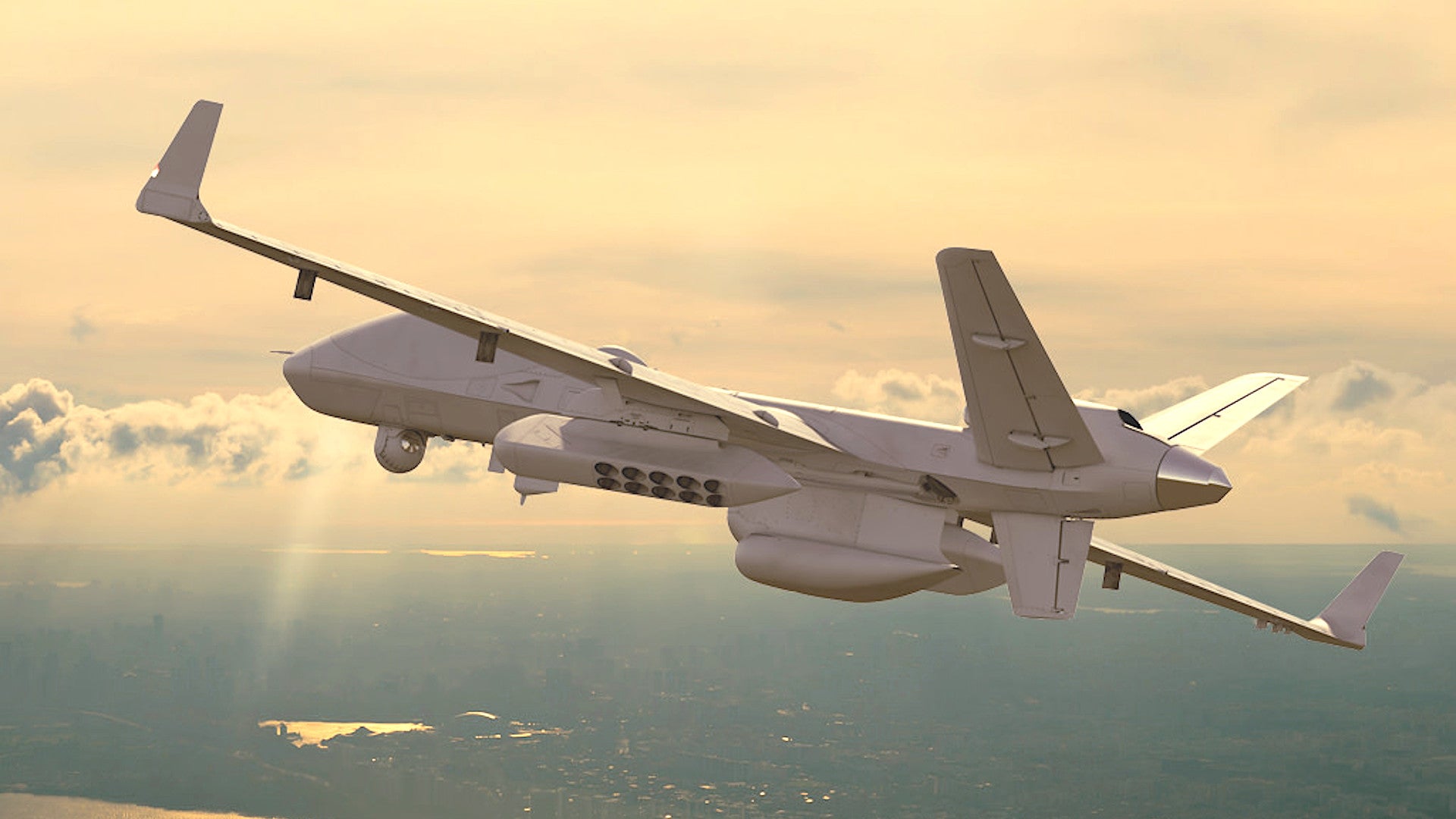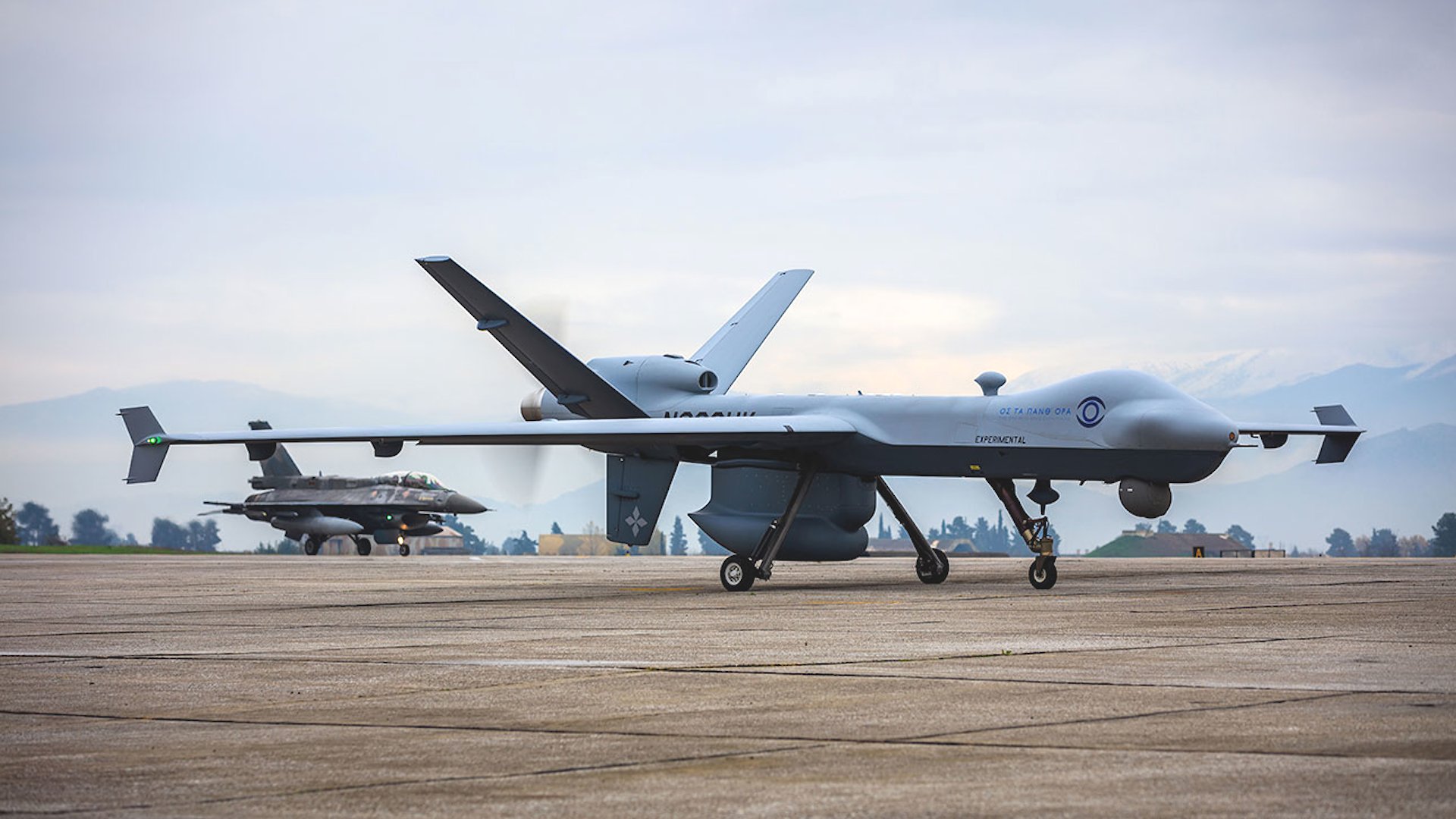The United States is reportedly lining up a sale of MQ-9B variants of the U.S. Air Force’s Reaper unmanned aerial vehicle to the United Arab Emirates. The drone package follows a proposal to sell 50 F-35 stealth fighters to the same country and, if it proceeds, it would be the first sale of U.S.-made armed drones to a customer in the Middle East.
Although a formal confirmation of the move has not yet appeared on the Defense Security Cooperation Agency (DSCA) website, Reuters reported that the U.S. State Department has informally notified Congress of the plans. The proposed package is said to include up to 18 MQ-9B unmanned aerial vehicles (UAVs) — a baseline fleet of 15, plus an option to buy three more — worth up to $2.9 billion, although, should the sale go through, this total could be subject to change. If the deal, which would almost certainly include other ancillary items and support services, goes through, it’s reported that the drones could be delivered from 2024.
While we don’t know the exact configuration of the drones that the United Arab Emirates (UAE) might be approved to buy, the General Atomics Aeronautical Systems (GA-ASI) MQ-9B Sky Guardian is the “Type Certifiable” variant of the U.S. Air Force’s MQ-9 Reaper that’s configured to meet airworthiness certification standards around the world. The Reuters report also makes it clear that the drones will be armed, or at least capable of carrying weapons. The first customer for the Sky Guardian was the British Royal Air Force, which has named the drone Protector RG1, and it was subsequently selected by Australia and Belgium.

The MQ-9B Sky Guardian configuration is essentially very similar to that of the U.S. Air Force’s existing MQ-9 Reaper and is intended for intelligence, surveillance, and reconnaissance (ISR) missions and has the ability to carry various weapons.
General Atomics also offers a maritime surveillance version of the MQ-9B, also referred to as the Sea Guardian, which notably features a surface search radar. A potential sale of four “weapons-ready” Sea Guardian UAVs to Taiwan, at an estimated cost of $600 million, was announced three days ago. The Taiwanese deal specifically includes Raytheon’s SeaVue Maritime Multi-Role Patrol Radar, which the company says has a “proven ability to detect small maritime vessels in high sea states including the stealthy, self-propelled semi-submersible (SPSS) craft that pose a significant threat to homeland security.”
Should the UAE go ahead with its plans, it could be very good news for General Atomics, whose Reaper drone faces a potentially uncertain future in terms of U.S. Air Force procurement, at least. As The War Zone discussed here, the Air Force’s 2021 Fiscal Year budget request includes plans to buy its last 24 MQ-9 Reaper systems, which would close out production in 2021 with a total of 337 drones delivered.

Reportedly, the drones for the UAE will be also equipped with the maritime surveillance radar, which suggests they could be of the Sea Guardian variant. The maritime version of the MQ-9B would offer particular capabilities that would be useful to the Gulf state, which has a requirement for persistent maritime surveillance, especially in light of the spate of attacks on commercial tankers in the Gulf of Oman in 2019. These drones could also be useful for patrolling the waters around Yemen, both for detecting threats and helping interdict weapons smuggling to the Houthis.
More generally, variants of the MQ-9 are increasingly being pitched for the anti-submarine warfare (ASW) role, as The War Zone discusses here. As well as sensors, GA-ASI has also been looking at the possibility of adding anti-submarine capabilities to the design including underwing sonobuoy dispensers. Iran’s small fleet of submarines could be a driver behind the UAE adding some kind of ASW capability to its drones, which could then be used to hunt them down during a crisis.

The planned drone sale to the UAE could also be the first transfer of U.S.-made armed unmanned aircraft since the Trump administration revised its policy of limiting such sales to only the closest and most trusted allies. Reports that the United States had reinterpreted the multinational Missile Technology Control Regime (MTCR) first appeared in June this year and, at the time, the UAE was mentioned among the potential beneficiaries.
The UAE’s possible MQ-9B deal could still run into official opposition, however. Like the previously announced F-35 package, for the sale of the drones to proceed, the U.S. Congress would have to agree that it adheres to legislation that secures Israel’s qualitative military edge (QME) in the region. You can read more about the potential ramifications of this policy here.
Furthermore, attempts could be made to block the sale by the U.S. Senate Foreign Relations and House of Representatives Foreign Affairs committees, some members of which have in the past been critical of the UAE’s role in the ongoing civil war in Yemen. Reuters suggests that the U.S. State Department may be holding off on formally notifying Congress of the sale until it has briefed these committees.
Of course, a potential drone sale to the UAE also has to be seen through the prism of the ongoing election issue in the United States, where, as of November 6, a winner was still to be declared. It remains to be seen if a Biden administration will continue with the Trump administration’s new interpretation of the MTCR guidelines. Moreover, a new administration may or may not try to continue the Trump administration’s overall push to increase U.S. arms sales abroad. The Biden camp has previously said it would have to review the sale of F-35s to the UAE, and the same may well apply to the planned drone sale, too.
Successive plans to sell the UAE F-35s, EA-18G Growler electronic attack aircraft, and now advanced armed UAVs indicate that the Trump Administration is still pushing to provide the Gulf state the cutting-edge weapons that it clearly desires. Whether the proposed deals pass their political hurdles remains to be seen, however.
Contact the author: thomas@thedrive.com
